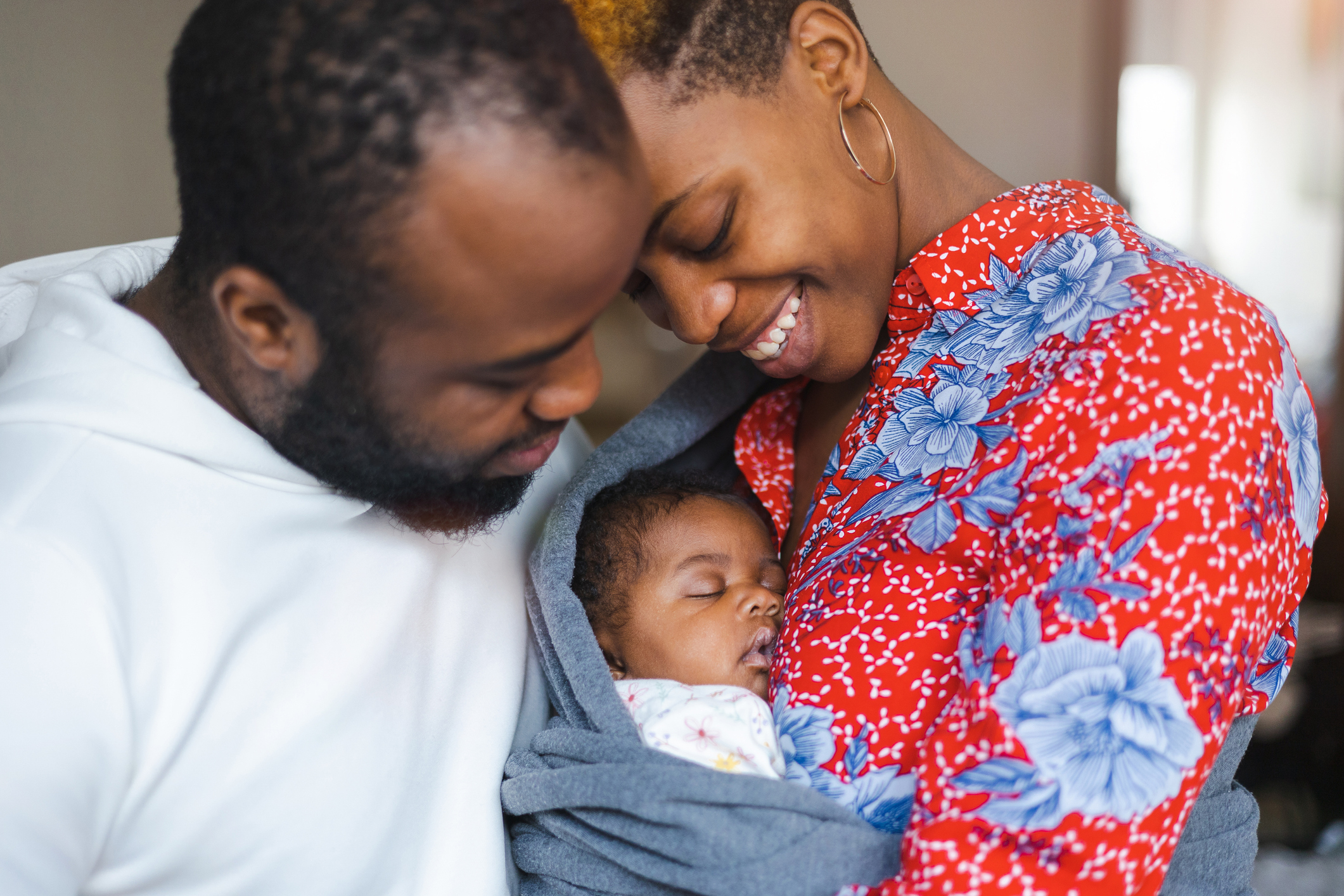Approximately 3,400 babies pass away suddenly and unexpectedly each year in the United States due to sudden infant death syndrome (SIDS), accidental suffocation in an unsafe sleep environment and other unknown causes.
Although researchers are still working to determine the exact causes of SIDS, being aware of the facts and knowing how to keep your baby safe can help prevent the unthinkable. Here are some tips for reducing the risk of sleep-related infant death and keeping your baby safe.
1. Practice the ABCs of safe sleep
Newborn and infant sleep safety is easy as ABC:
- Alone: Babies should always sleep alone in their own crib or bassinet, not in the same bed as someone else. According to the American Academy of Pediatrics (AAP), co-sleeping significantly increases the risk of sleep-related infant death.
- Back: Put your baby to sleep on their back. Since babies might not be able to move their heads when sleeping on their tummies, doing so could block your baby’s mouth or nose, preventing them from getting the air they need.
- Crib: Your baby should always sleep in their crib or bassinet. If they fall asleep somewhere else—like in a car seat or on a couch—re-settle them into their crib as soon as possible. The crib itself should have a firm mattress with a tightly fitted sheet and should remain free of pillows, blankets, toys or bumper pads, as these can interfere with breathing.
According to the American Academy of Pediatrics (AAP), caregivers of newborns and infants should follow the sleep safety ABCs until their babies are one year old.
2. Avoid infant drops and falls
Let’s face it—taking care of a newborn baby can be exhausting and overwhelming. Lack of sleep can lead many parents and caregivers to unintentionally fall asleep while holding the baby. Unfortunately, this is how many newborn drops occur. Newborn falls and drops can result in serious injury, but the good news is that they’re often preventable. and
“Be mindful of feeling sleepy or drowsy, especially after breastfeeding, taking pain medication or being awake in the middle of the night with your baby, especially if you had a C-section,” said Paul Kouyoumdji, M.D., medical director and pediatrician at Inspira Medical Group Pediatrics Salem. “Remember that if you’re feeling drowsy or weak, it’s okay to ask for help and get the rest you need while someone else holds the baby.”
Never leave your baby unattended on couches, beds, chairs, tables or any other place where they might fall. If your baby falls or is dropped, call your pediatrician immediately. They can help you evaluate your baby’s condition and determine your next steps.
3. Know your risk factors
Researchers have discovered some factors that may put your baby at extra risk for SIDS. Although some risk factors can’t be controlled, they’re important to be aware of. “SIDS is more common in boys, premature babies and infants two to four months old,” said Dr. Kouyoumdji. “Babies with a family history of SIDS and those exposed to secondhand smoke are also at a higher risk.” If your baby is at increased risk for SIDS, following the AAP’s sleep safety guidelines is vital. Talk to your pediatrician about additional steps you can take to keep your baby safe and healthy.
4. Maintain a smoke-free environment for your family
Protect your newborn from secondhand smoke by keeping your home, car and anywhere else your baby will be smoke-free. Smoke is a known risk factor for SIDS, so you must take every precaution to eliminate it from your baby’s environment. Moreover, don’t smoke or use nicotine products while pregnant and get the help you need to quit.
5. Talk to your pediatrician about your concerns
“No concern is too small when it comes to your baby,” said Dr. Kouyoumdji. “If your baby ever falls or you have a question about your baby’s safety or development, never be afraid to talk to your pediatrician.” They can assess your baby’s condition, provide treatment as needed and offer advice and guidance on how to keep your baby safe and healthy.
Inspira Medical Group now offers pediatric services in Salem county with personalized care for children from birth to age 18 or high school graduation.
